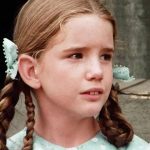Gene Wilder is a beloved Hollywood icon whose quirky comedic image is a bit of a contradiction to his gentle and kind-hearted nature. It says that he can’t hurt a fly, and if one lands on his arm, he would wait for it to fly away.
It’s remarkable how a timid soul like him survived and prospered in the cut-throat world of Hollywood. But survive he did, and in fact, he had a successful career that lasted nearly four decades.
In all his movies, he played off-kilter characters with effortless charm. His over-the-top characters have cemented his place as one of the industry’s best comic actors. However, Gene Wilder’s life was far from a comedy.
It’s difficult to believe that an actor known for portraying these characters actually had problems off-screen. As it turns out, the glitz and glamour of the clownish characters he played masked a deeply tragic life.
His tumultuous childhood taints by bullying, sexual abuse, and paralyzing guilt over a terminally ill mother. He developed a mindset that made him feel guilty for being happy. Even he pushes into a religious sect that creates an obsession with praying in public, often for hours at a time.
He had two troubled marriages before finding a woman he adored, only to lose her to cancer. As many of his fans know, he would also battle cancer during his lifetime. He would recover only to succumb to an even more dreadful sickness: Alzheimer’s disease. This eventually caused his death at the age of 83. Despite four marriages, he never had any children.
Surprised by the gloomy life behind the camera? You’re not the only one. But life is not always like the movies. Join Facts Verse as we examine the tragic reasons why Gene Wilder quit acting before his death.
Born Jerry Silberman in Milwaukee, Wisconsin, Gene Wilder was prone to anxiety attacks and related afflictions, likely traits he developed during his childhood.
At 8 years old, his mother heals after surviving a heart attack. A doctor told him that if he ever argued with his mother, it could kill her. The warning left him terrified of doing anything to upset his beloved mother. If the doctor had just said, ‘Please, don’t ever argue with your mother” it would have been okay. But the fear of causing her death was a heavy weight to bear for a young child.
Gene had an unusually close relationship with his mother. He devotes to her, even though she had a fiery temper. Once she washed his mouth out with a bar of soap for innocently asking what the “F word” meant. Yet, to keep her entertained during her illness, he would sing songs and do silly voices. Obviously, this influenced his passion for the performing arts.
When he is 13, Gene goes to a tough military boarding school, the Black-Foxe Military Academy in Los Angeles. As the only Jewish student, he receives teasing, bullying, and even beat up by other students. It is believed that he was also the victim of sexual abuse from his roommate during this time.
He wrote to tell his father about the beatings, as he was afraid to tell his mother given her poor health. When Gene came home with bruises on his arms and chest, his parents pulled him out of the oppressive school.
The bad experience made a lasting mark on Gene’s life. He believed that if he became happy, it would be unfair to his suffering mother and to anyone else who was experiencing pain. Around this time, he tried to find comfort in religion.
Gene’s aunt was a Theosophist, a member of the religious movement founded by Russian clairvoyant Madame Blavatsky. She welcomed Gene into their circle and introduced him to fellow members and their beliefs. They told him he was an angel, and specifically advised him to avoid smoking because it interfered with the messages he was receiving from God.
His involvement with the Theosophists triggered a sudden and intense obsession with praying. As a young teenager, he would spend hours on his knees, begging God’s forgiveness for minor offenses. He prayed aloud in parks, crowded streets, and on buses, murmuring to avoid drawing attention to himself. It was only when he discovered acting that he was able to break free from this obsessive-compulsive behavior.
Gene graduated from high school in 1951, studied at the University of Iowa and then at the Old Vic theatre school in England. He returned to the US in 1955 to study acting at the HB Studio in New York. His study was interrupted when he was drafted in 1956, but after two years in the army, he returned to New York to continue his study.
There he met his first wife, an English actress named Mary Mercier. However, since both were often on the road with acting jobs, their marriage soon broke down and they divorced in 1965.
Two years later, he married his second wife, Mary Joan Schutz. This marriage lasted a little longer than the first, but they divorced after 7 years.
While performing on stage in 1963, Gene met Anne Bancroft, who introduced him to Mel Brooks. She thought Gene would be perfect for a role in a movie he was writing. In 1967, Mel Brooks cast him in “The Producers” as the neurotic accountant Leo Bloom. The movie was released in 1968 and it earned him an Oscar nomination.
Hey, if you’re enjoying the video so far make sure you hit the Like Button to show your support and subscribe to Facts Verse if you haven’t done so already.
In 1971, Gene landed his most iconic role as the candy czar of Willy Wonka and The Chocolate Factory. The movie had such an enduring impact that even after over 40 years, Gene still gets five letters a day asking for autographs.
In 1974, Gene Wilder and Mel Brooks worked together to release two legendary movies, Blazing Saddles and Young Frankenstein. Both movies earned accolades and cemented their reputation as Hollywood’s brightest comedy team.
Things seem to be turning for the better when he met his third wife, Gilda Radner. He met the bubbly comedy actress while filming the movie Hanky Panky. Gilda described their first meeting as “love at first sight” and they became inseparable. At the time, Gilda was married to Hall & Oates guitarist G.E. Smith. But, the marriage was on the rocks, and when they divorced in 1982, she renewed her friendship with Gene. They married in 1984, and shortly after began trying to have children. Sadly, Gilda would suffer a miscarriage before discovering more severe health issues.
In 1985, while making the film Haunted Honeymoon, Gilda began experiencing fatigue and pain in her upper legs. The problem was not properly diagnosed until 1986, when a biopsy revealed she had ovarian cancer.
Due to the couple’s difficulty having a baby, Gilda received an operation to open her fallopian tubes and increase the likelihood of pregnancy. Sadly, this operation is widely considered to be the cause of her cancer. Gene cared for his wife for the next three years until her death in 1989, which left him utterly heartbroken.
A few years later he found happiness and love again. He married Karen Webb, a lip-reading expert who had coached him to play a deaf man in the comedy See No Evil, Hear No Evil. They were still together when he died, and Gene admitted his years with her were the happiest in his life.
It was at the height of his happiness and success that he started to become disillusioned with Hollywood and began distancing himself from close associates.
One such falling out is with Mel Brooks. Him and Gene had different opinions of success, and Gene was turned off by Mel Brooks’ constant pursuit of money and fame.
Richard Pryor is probably Gene’s most famous movie buddy. They starred together on some of the biggest comedy hits. Blockbuster films like Silver Streak, Stir Crazy, and See No Evil, Hear No Evil established the duo as bankable stars with terrific on-screen chemistry.
However, Richard’s heavy drug use dismayed the clean-living Gene, and they never became good friends. He even stated that during all the years they worked together, Richard Pryor was a pretty unpleasant person to be around.
Gene Wilder was never comfortable being the big star, and despite his success, happiness eluded him in Hollywood. Mel Brooks once described Gene as a sheep surrounded by wolves.
With no strong friendships and a dissatisfaction of how modern films are catering to violence, swearing, and killing, he decided to retire from making movies. He focused on writing books, novels, and a personal memoir that narrated his life.
In 1991, Gene set up a cancer research program. Tragically, eight years later, he himself was diagnosed with blood cancer. He was treated and the cancer was in remission by 2005.
But his good health didn’t last, and in 2013, he was diagnosed with Alzheimer’s disease. He kept his affliction secret from the public because he knew this would sadden the fans of Willy Wonka.
On August 29, 2016, Gene died in his home at the age of 83 due to complications of Alzheimer’s. With his family holding his hands, the sound of ‘Somewhere Over the Rainbow’ filled the room just before his last breath. It was Gene Wilder’s favorite song.
Fortunately, he leaves behind an impressive catalog of work. What’s your favorite Gene Wilder film – do you prefer Willy Wonka and the Chocolate Factory, or do you remember him in a different role?
Let us know your thoughts in the comments section below! And if you enjoyed this video, be sure to give it a like and subscribe to Facts Verse if you haven’t already. Then, click the bell icon to stay updated on all our latest content.


